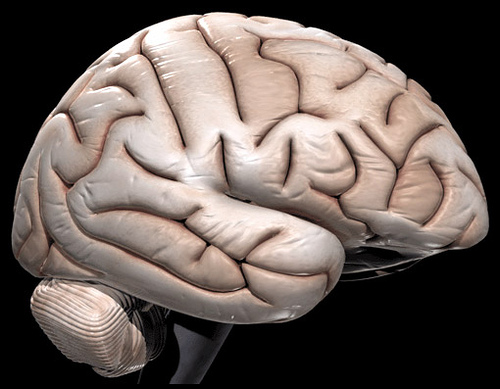Alzheimer’s disease is a devastating neurological disorder that causes memory loss and destroys important cognitive functions. It’s highly prevalent among seniors, affecting one in every nine people over the age of 65, and is currently the sixth leading cause of death in the United States. Although much of Alzheimer’s remains a mystery, we do know that it involves plaques and tangles composed of proteins forming throughout the brain, resulting in neurons losing their ability to function and communicate with cells around them, leading to neuronal death. It has also been discovered that inflammation plays a key role in Alzheimer’s. An inflammasome called NLRP3 was shown to contribute to an inflammatory response that worsens the progression of Alzheimer’s. Inflammasomes are protein complexes which trigger inflammation as part of the immune response to infection.
Image Source: Science Photo Library – ZEPHYR
Recently, scientists from the University of Manchester conducted a study to explore the possibility of treating Alzheimer’s with non-steroidal anti-inflammatory drugs (NSAIDs). Fenamate NSAIDs inhibit enzymes which activate NLRP3, effectively inhibiting the inflammasome itself. Importantly, the drug selectively targets NLRP3. If other inflammasomes were also inhibited by the NSAID, this could have harmful effects on the body’s ability to combat infection, as inflammation contributes to the body’s natural immune response. In fact, the inflammation resulting from Alzheimer’s is an immune response triggered by the plaques and tangles that form in the brain as a result of the disease. Unfortunately, in this case, the inflammation ends up doing more harm than good by causing disease progression.
To test the effectiveness of fenamate NSAIDs as a treatment for Alzheimer’s disease, the researchers used transgenic mice which develop Alzheimer’s. They used mice between 13-14 months of age – about half its lifespan- to ensure they displayed the memory loss symptomatic of the disease. After being treated with mefenamic acid, a common fenamate NSAID used to relieve menstrual pain, for 28 days, the researchers observed a complete reversal of both the neuroinflammation and memory loss.
The results of the study indicate that fenamate NSAIDs could potentially have enormous therapeutic effects for people suffering from the disorder. While promising, clinical trials will be necessary to determine whether these effects will translate to humans with Alzheimer’s disease.
Feature Image Source: AJC1










